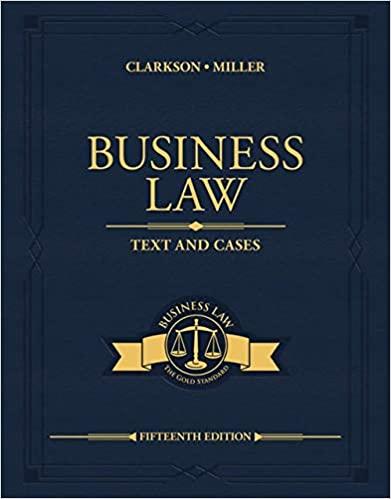Floyd Finch and Bruce Campbell were partners in a law firm. They did not have a written
Question:
Floyd Finch and Bruce Campbell were partners in a law firm. They did not have a written partnership agreement, but they shared the firm’s expenses and profits equally. The partnership operated on a cash basis, using billing software to track time spent on client matters. Instead of using the software, however, Finch would review e-mails and other work product to create and generate bills months or years after the work had been performed. As a result, large amounts of the firm’s accounts receivable were uncollectable. Upset over the lost revenue, Campbell filed a claim in a Missouri state court against Finch. Campbell argued that failing to bill clients in a timely manner was a breach of a partner’s fiduciary duty. He alleged that Finch had been trying to lower his income because he was involved in divorce proceedings. Finch responded that billing clients was a matter of partnership management and operation, and thus was reserved to the judgment of each partner. [ Finch v. Campbell, 541 S.W.3d 616 (Mo.App.W.D. 2017)] (See Formation and Operation.)
(a) Is Finch’s billing practice a breach of ethics? Explain, using the IDDR approach.
(b) Finch asserted that there must be self-dealing for a partner’s act to be a breach of fiduciary duty. Is he correct? Discuss.
Step by Step Answer:

Business Law Text And Cases
ISBN: 9780357129630
15th Edition
Authors: Kenneth W. Clarkson, Roger LeRoy Miller





